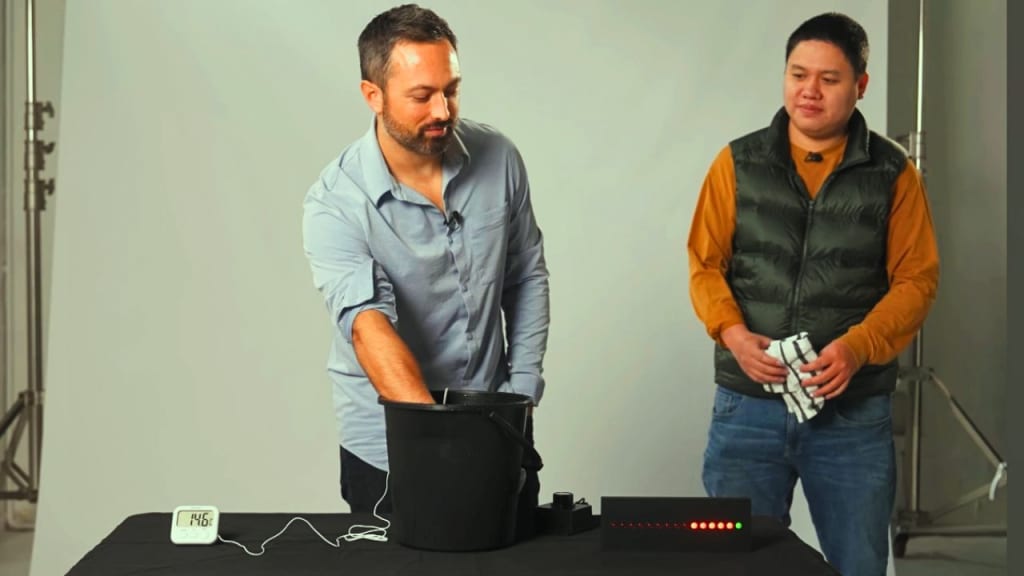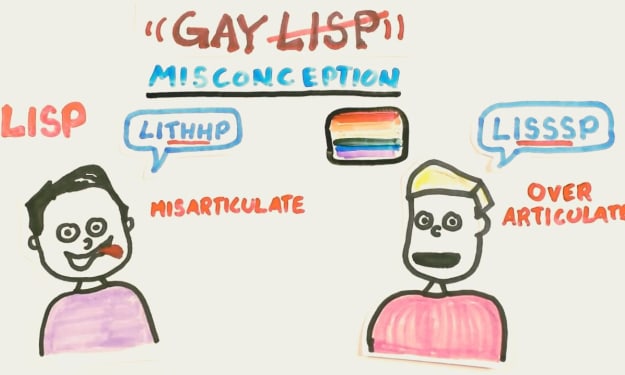Understanding Discomfort: A Psychological Experiment
A Psychological Experiment

Understanding Discomfort: A Psychological Experiment
Imagine being asked to put your hand into a bucket of cold water. Sounds simple, right? Now, imagine you have to keep it there for an unknown duration while rating your discomfort on a scale. This is part of an experiment replicating a study by Daniel Kahneman and Barbara Fredrickson from 1993, investigating how we perceive and remember discomfort.
Participants were told that the experiment aimed to compare pain perception between the dominant and non-dominant hands. But that wasn't the true purpose. The real focus was on how the participants would recall their experience of pain.
Participants submerged one hand in 14°C (57°F) water for 60 seconds. They were asked to rate their discomfort in real-time, describing sensations like stinging, aching, and numbness. After the trial, they took a 15-minute break and then repeated the process with the other hand.
What the participants didn't know was that the two trials were different. One trial ended after 60 seconds, while the other continued for an additional 30 seconds with the water warming slightly to 15°C (59°F). This slight increase in temperature reduced the discomfort, but it was still uncomfortable.
The big question was: Which trial would they prefer to repeat? Surprisingly, most participants preferred the longer trial, even though it involved more time in discomfort. In our small-scale replication, seven out of twelve people chose the longer trial. In the original study, about 70% preferred it.
This seems odd, right? Why would anyone prefer more discomfort? It turns out our brains play a trick on us. Kahneman and Fredrickson found that our memories of experiences are shaped by two key moments: the peak (the most intense part) and the end. This is known as the peak-end rule.
To understand this better, Kahneman and his colleagues conducted another study. They showed students short and long versions of pleasant and unpleasant videos. They found that the length of the video had little effect on how positively or negatively it was remembered. Instead, the most intense and the final moments had the biggest impact.
This concept of duration neglect means that the length of an experience doesn’t affect our memory of it much. What matters are the peak moments and the ending. For example, if a vacation has a few really great days and ends on a high note, you'll remember it fondly, regardless of how long it was.
This idea also applies to negative experiences. If a medical procedure ends with a period of less discomfort, patients are likely to remember the whole experience more positively. In a 2003 study, Kahneman tested this with colonoscopy patients. Those who had an extra three minutes of less painful discomfort at the end rated the experience as less unpleasant and were more likely to return for follow-up procedures.
This phenomenon extends to everyday life. For instance, if you finish a workout with a pleasant cool-down rather than a tough sprint, you’re more likely to remember the workout positively. Similarly, if you end a shopping trip with a treat, like a cheap hot dog at Ikea, the whole trip feels better.
Even significant life events are influenced by the peak-end rule. A study showed that people rated a shorter life ending at 30 as more desirable than a longer life ending at 35, if the extra years were less fulfilling. The ending heavily influences our perception of the entire experience.
Understanding this can help us create better memories. To make vacations more memorable, focus on having a few peak experiences and ending on a high note. In day-to-day life, ending activities with something pleasant can improve our overall perception.
This insight isn't just an interesting psychological quirk; it has practical applications. It can improve our health, relationships, and overall happiness by helping us create better memories.
In conclusion, our perception of experiences is shaped more by key moments and how they end than by their overall duration. By focusing on creating strong positive peaks and pleasant endings, we can enhance our memories and make life more enjoyable.
About the Creator
Enjoyed the story? Support the Creator.
Subscribe for free to receive all their stories in your feed. You could also pledge your support or give them a one-off tip, letting them know you appreciate their work.






Comments (1)
I enjoyed this piece, it was very informative. I frequently wonder why "scientists" decide what they are going to "test!" this test seems weird, and why? I loved your paragraph talking about real life and ending vacation on good note. Maybe this is also why humans give hugs when they leave a friend's house after getting together, it is a high note ending.